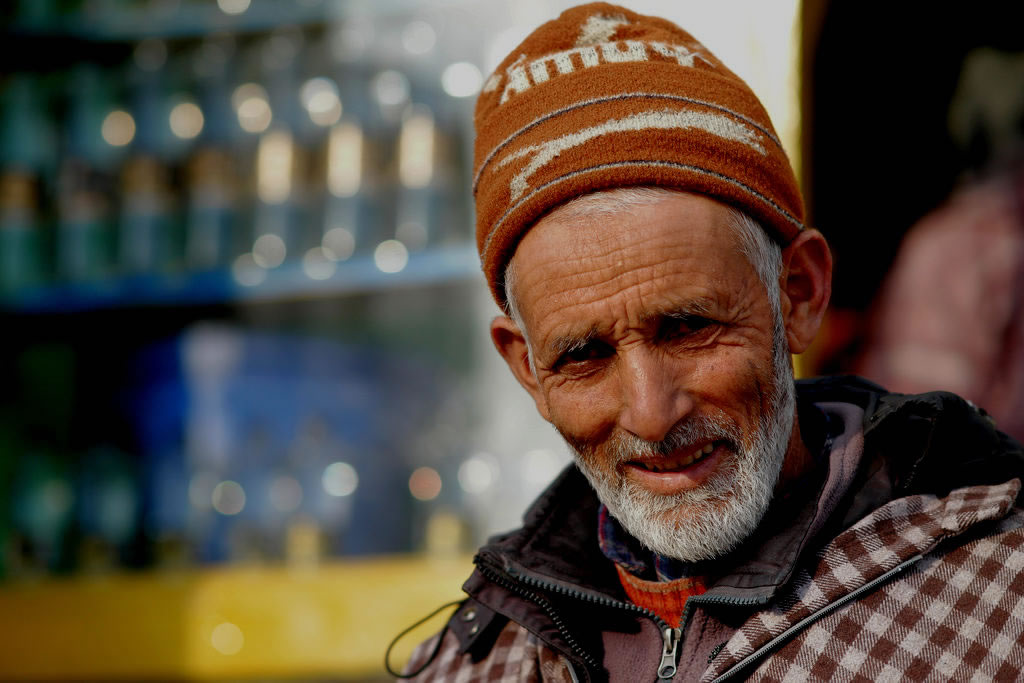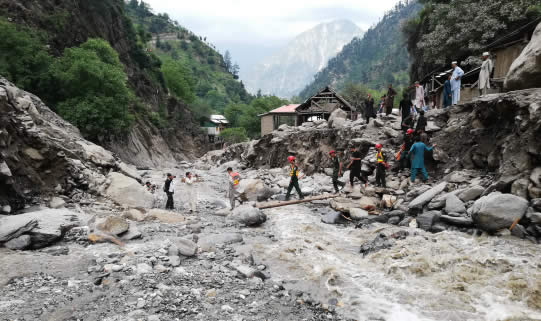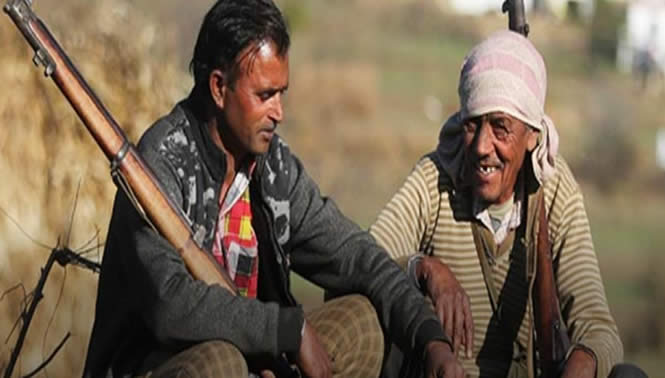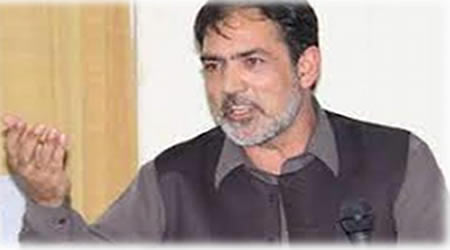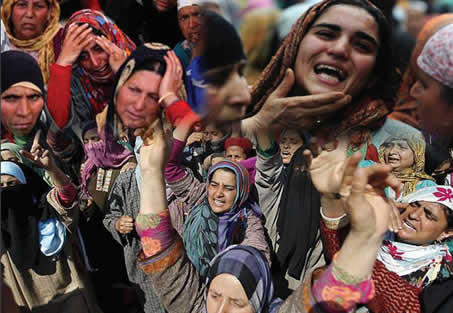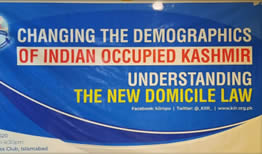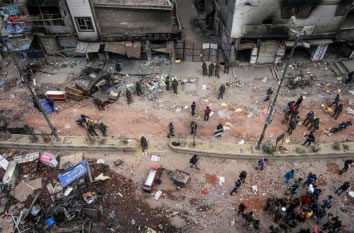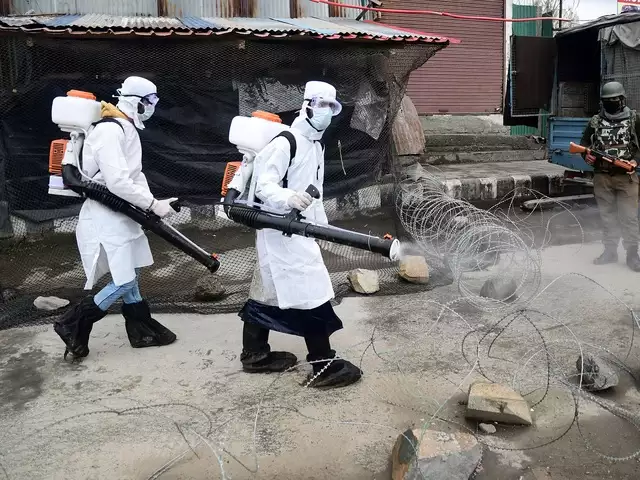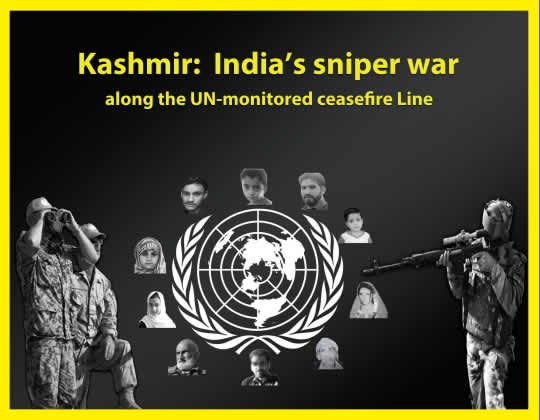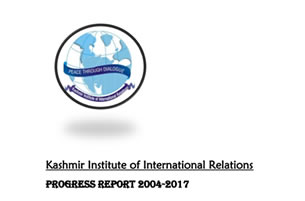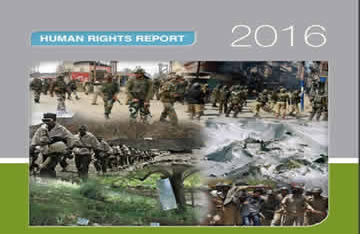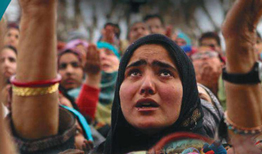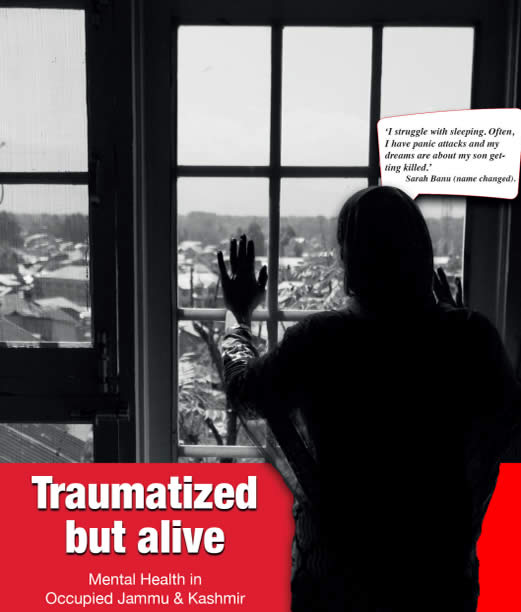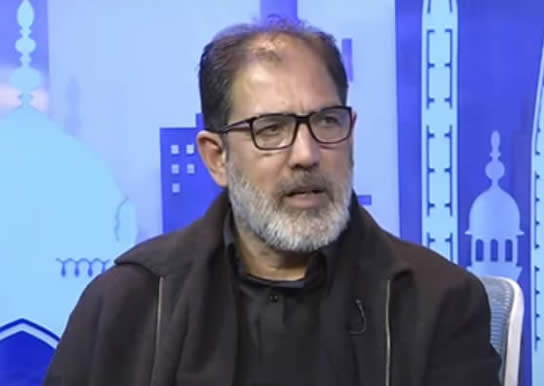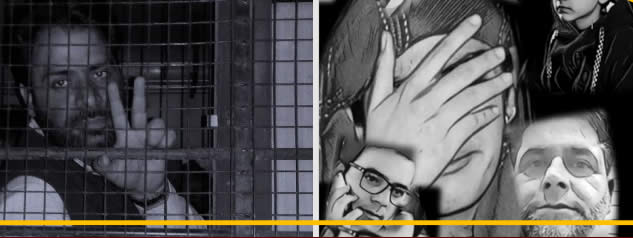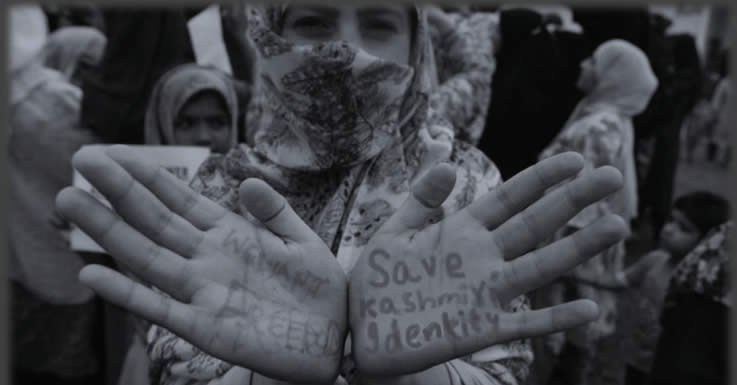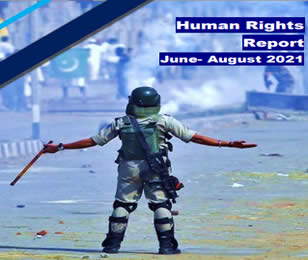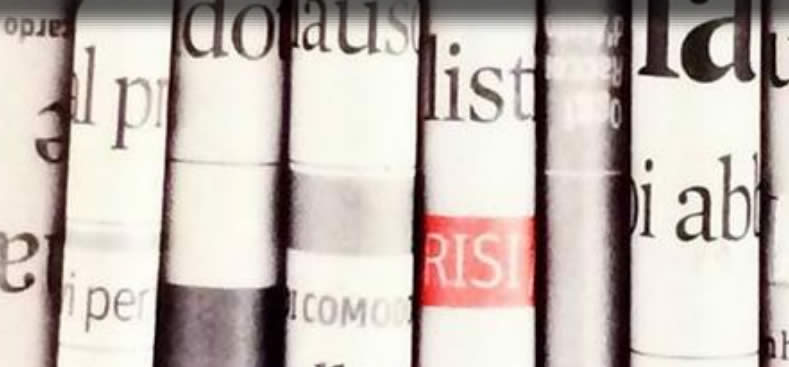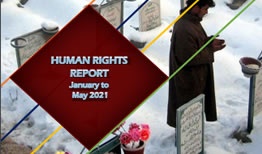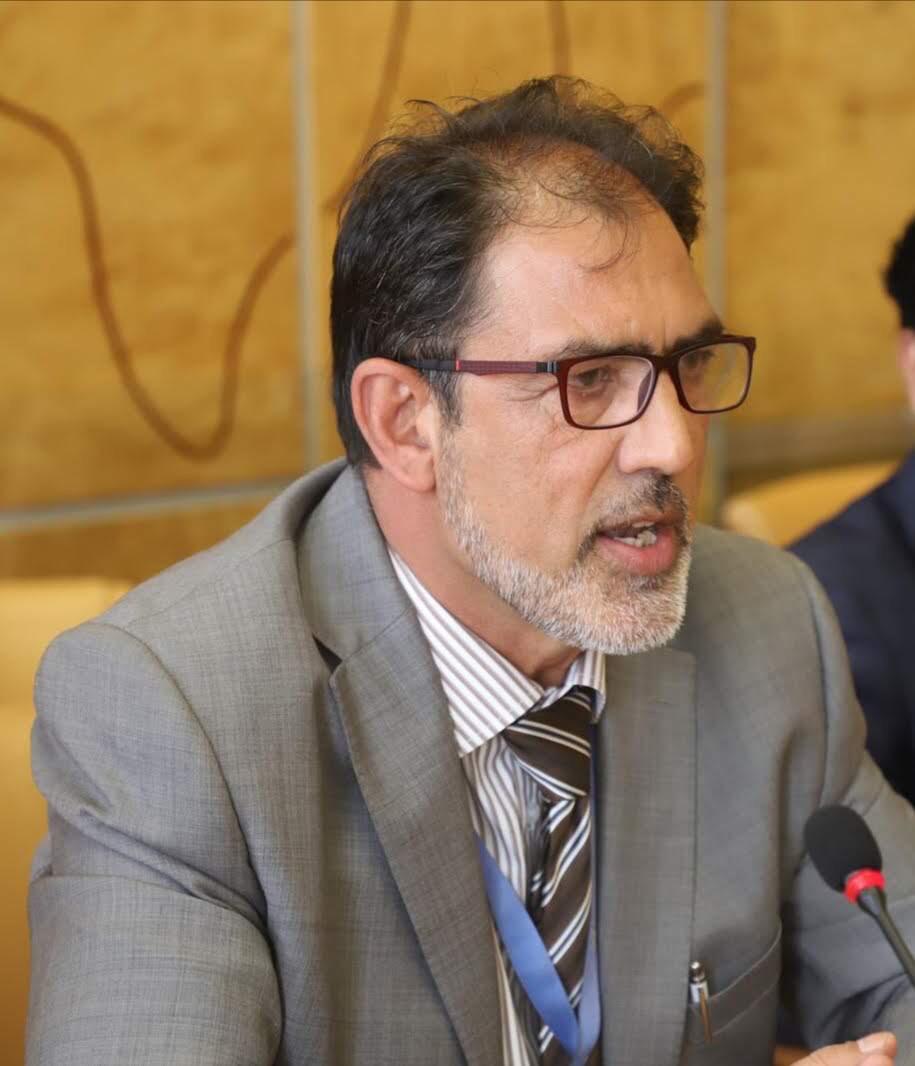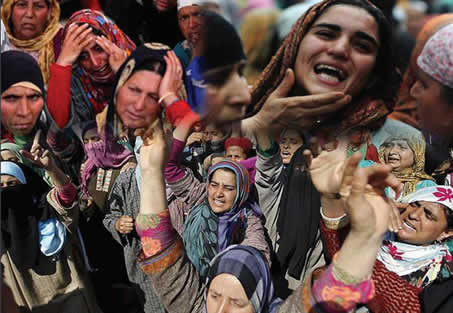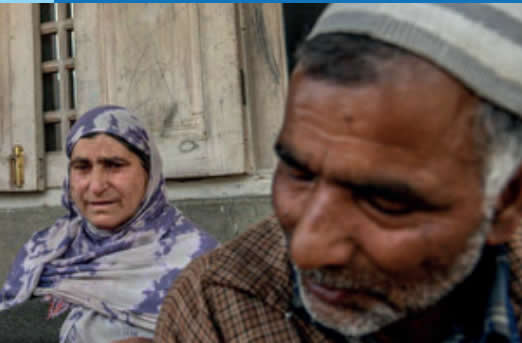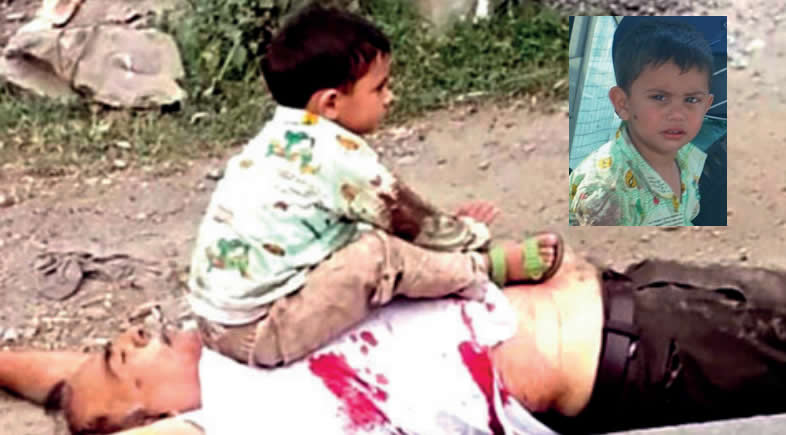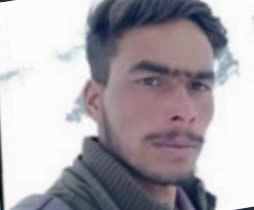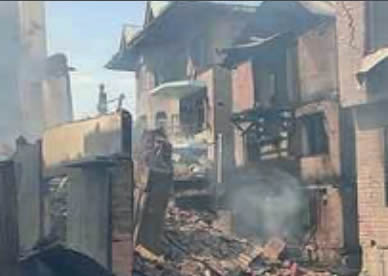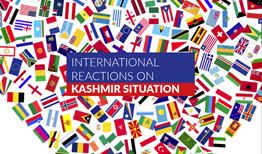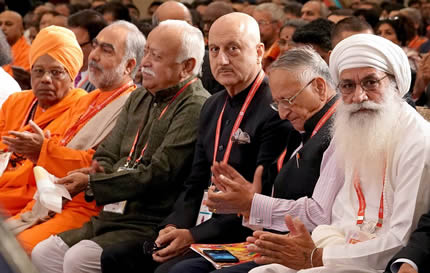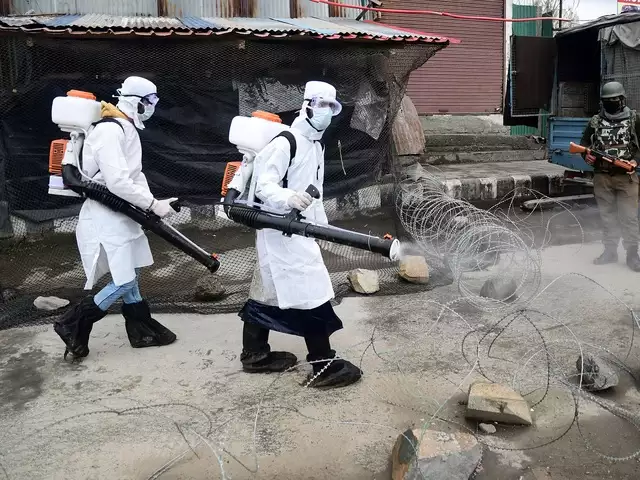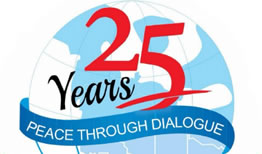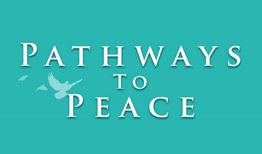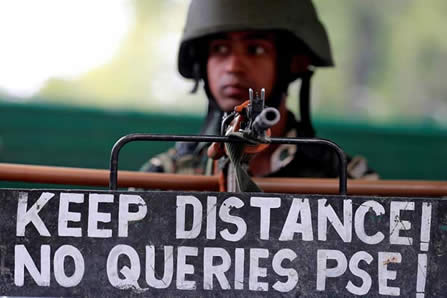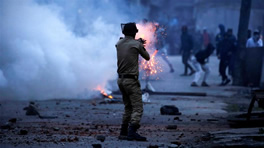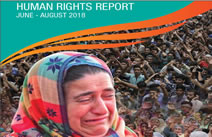India's Systematic Campaign To Deletimize Kashmiris' Legitimate Struggle
India's Systematic Campaign To Deletimize Kashmiris' Legitimate Struggle
Preface
DELEGITIMIZATION CAMPAIGN: HOW DID IT START?
On 5th August 2019, the Indian government, in brazen violation of the UNSC resolutions, revoked Kashmir’s special status guaranteed to it under Article 370 of the Indian constitution. Before embarking on its ambitious plan, the BJP launched a massive delegitimization campaign, under which the Kashmiri Muslims, who constitute 70% of the total population of the state, were painted as “foreigners” or “invaders”. At the same time, a full-scale vilification campaign against the majority community was launched and the entire community was branded as “traitors” whereas Hindus were depicted as the original aborigines. The negative portrayal of the indigenous population and political labeling such as stereotyping of the Kashmiri Muslims, branding them as religious fanatics, and labeling every person who dares to speak against the excesses being meted out to Kashmiris, as a secessionist or anti-state, has opened floodgates of hatred, prejudice and discrimination against the people of Kashmir within and outside the Kashmir valley.
It was not just a mere coincidence but the BJP’s well-thought plan, which, in collaboration with other right-wing Hindu nationalist organizations, ran a systematic campaign to demonize and delegitimize the people of Kashmir. However, this vicious campaign gained traction soon after the RSS-influenced regime won the elections, and Modi, the man directly responsible for the 2002 Gujrat massacre, started his tenure after swearing-in as the 16th Prime Minister of India on 30 May 2019 second term.
Framing Kashmir issue as ‘Hindu India vs Muslim Kashmir’ A full-scale campaign of monolithic proportions was waged to influence and manipulate public opinion on Kashmir within India, under which the entire vocabulary surrounding the word Kashmir and the case of Kashmir was changed. Kashmir, a purely political dispute involving the rights of millions of Kashmiris, was portrayed as ‘Hindu India vs Muslim2 Kashmir’ while branding legitimate political aspirations of Kashmiris as ‘anti-national’. The campaign spearheaded by the RSS influenced leaders of the BJP, who held greater sway in the government, virtually opened floodgates of hatred and violent hate crimes against Kashmiris. Despite constitutional protections, Kashmiris were widely seen as facing discrimination, prejudice, and violence in and outside the valley.
Sharpening the communal divide, the Hindu supremacist regime led by Modi capitalized on this rising tide of intolerance and anti-Muslim sentiment in India to push forward its communal agenda in the region (IOJK). Especially, in the aftermath of 5th August 2019, the day when Kashmir was stripped of its special status, various legislative and other actions were taken by the Modi regime that has virtually legalized and legitimized the marginalization and political disempowerment of the majority community in the region.
Stripping Kashmiris of their political rights
Brutal draconian laws, which were censored by human rights bodies for being excessively severe, were used to strip Kashmiris of their legitimate political and democratic rights. Under the thick cover of a whole regime of draconian laws, which provide legal cover to disappearances, extrajudicial killings, torture, & unfair trials, the puppet authorities have wreaked havoc in the region.
Colonial-era tactics including arbitrary arrests, house detentions, intimidation, and surveillance are used as tools of oppression to silence Kashmiris. Journalists, rights defenders, and civil society activists attempting to cover armed conflict and documenting organized crime and human rights violations are being targeted and booked under the notorious UAPA, which has been termed as the most dangerous3 law. The mainstream media in the region was virtually taken over by the government forces in order to shape news coverage to support their own interests, in addition to promoting its fabricated narrative and hiding ground realities.
2 https://southasiajournal.net/shrinking-democratic-space-in-kashmir-analysis/
3 https://thewire.in/video/beyond-the-headlines-11-uapa-bill-dangerous-law
IMPACTS ON THE GROUND
The deadly scheme, with far-reaching consequences, eventually manifested on the ground in many different hostile and violent forms. For instance,
1. Suppression of dissent
Initially, a massive crackdown coupled with a smear campaign was launched to silence the legitimate Kashmiri political voices. The National Investigating Agency (NIA), which had no jurisdiction to operate in Kashmir, was let loose to harass and humiliate politicians, mainly those who refused to accept India’s contention over the issue of Kashmir. The dreaded agency, which conducted raids in the region under the direct command of the Narendra Modi-led NDA government at the Centre4, led to the detention of prominent Kashmiri leaders, journalists, rights activists, academicians and lawyers, businessmen, and civil society activists. The majority of political detainees taken into “preventive custody” on and after August 4, 2019, have been rotting in jails as undertrials5 without access to a lawyer and family members. As per the law, any person taken into custody should be promptly taken before a judge and provided the reasons for their arrest and detention and any charges against them.
It is important to note here that prolonged detention without charge violates India’s obligations under international human rights law. The International Covenant on Civil and Political Rights, to which India is a party, prohibits arbitrary arrest and detention.
According to the HRW6 report, several thousand Kashmiris, including politicians and opposition activists, have been held in preventive detention since August 5, 2019, when the Indian Parliament voted to alter the autonomous constitutional status of Jammu and Kashmir state and split it into two federally governed territories.
Those detained include approximately 400 elected officials and political leaders, as well as former chief ministers of Jammu and Kashmir belonging to the National Conference and the Jammu and Kashmir People’s Democratic Party.
Those detained include approximately 400 elected officials and political leaders, as well as former chief ministers of Jammu and Kashmir belonging to the National Conference and the Jammu and Kashmir People’s Democratic Party.
The report said that the authorities at the helm of affairs have detained nearly 4,000 people, including supporters of political parties, separatist leaders, lawyers, journalists, and people who allegedly had records of participating in protests. There have been serious allegations of torture and beatings.
2. Misuse of institutions
The NIA’s jurisdiction to J&K was extended in 2008, and it is seen in Kashmir as an attempt to discredit and undermine the credibility of state institutions. Some analysts believe that the Modi-led NDA government in New Delhi has “misused institutions” including the NIA, to “stifle voices” in the Valley. This is also seen by many as part and parcel of the BJP’s “muscular and militaristic Kashmir policy.
Sadly, the agency, which came up with a limited mandate, has been given a free run in Kashmir, where well-reputed politicians, pressmen, and rights defenders are arrested under trumped-up charges merely for speaking the truth, reporting crimes, and documenting human rights violations in the region.
4 https://thewire.in/government/nia-jammu-and-kashmir-police
5 Annual-Report-Human-Rights-JK-2022 released by the forum for HR in J&K
6 https://www.hrw.org/news/2019/09/16/india-free-kashmiris-arbitrarily-detained
7 https://thewire.in/government/nia-jammu-and-kashmir-police
3. Restrictions on political parties
Prominent political parties that have been active in politics for decades were banned after being labeled as “terrorist organizations” by India. Jammu and Kashmir Liberation Front (JKLF), a pro-independence group, headed by jailed Kashmiri leader Muhammad Yasin Malik was declared as an unlawful association under the Unlawful Activities (Prevention) Act, (UAPA) by India.
The Ban on the JKLF was part of the Modi government’s clampdown campaign to silence the political organizations seeking a settlement of the Kashmir dispute in line with the UNSC resolutions. Earlier, the Indian government banned the socio-political and religious organization Jamaat-e-Islami and arrested over 300 members of the group and other pro-independence activists. The ban on Jammat-e-Islami Jammu and Kashmir was imposed for allegedly being involved in unlawful activities that threatened the sovereignty and territorial integrity of India.
The JI, a political/religious organization that was established in the 40s, years before the creation of India and Pakistan, maintains that Jammu and Kashmir is a disputed territory, and seeks its resolution through the right to self-determination of the Kashmiri people. The banning of legitimate political voices marked a significant turn for the worse in the already dire state of affairs in the region. Mehbooba Mufti8, the former chief minister of the Indian-held territory of J&K, condemned the ban and termed it as the “high-handedness” of the Indian government.
The resistance leadership in the region denounced the ban and said it would not change the political reality of Kashmir. “Strongly denounce the ban on JKLF after Jamaat-e-Islami. Such anti-Kashmir tactics will not change the reality of Kashmir issue nor the urgency to resolve it,” renowned Kashmiri leader and chairman of Hurriyat Conference Dr. Mirwaiz Umar tweeted9.
Independent observers believe that the harassment of civil society organizations and human rights defenders has a long history. For example, Jammat, which does immense social welfare work and runs a vast network of schools/colleges across Jammu and Kashmir, was also put under ban twice before being designated as a “terrorist organization” in 2021. So, the ban on political and civil society organizations seems to have nothing to do with “terrorism”, but what needs to be understood is the function and purpose of the legal system India has enforced to prevent the region’s legitimate political voices having the ability for political mobilisation against the Indian occupation.
4. Shrinking space, encroachment on civil & political rights Civil society organisations in Kashmir face a shrinking space due to various repressive measures taken by the Indian government and the authorities at the helm of affairs in the region. The highhandedness and muscular approach ultimately led to an unending process of democratic erosion and encroachment on civil and political rights in the held territory. Civil society actors operating in the region faced an expanding array of repressive measures that literally compromised their capacity to document, to engage in advocacy, or to express criticism about mistreatment of the Kashmiris at the hands of the Indian occupation forces.
Rights defenders and Kashmir watchers recognise the fact that the shrinking of civic space has been propelled by aggressive delegitimisation campaigns conducted by the Modi-led fascist regime, as well as the constraints that de facto authorities in the region have imposed to curtail people’s fundamental freedoms under the garb of black laws prevalent in the region.
8 https://www.aljazeera.com/news/2019/2/28/india-bans-jamaat-e-islami-in-kashmir-amid-conflict-with-pakistan 9 https://www.aa.com.tr/en/asia-pacific/india-bans-pro-independence-group-jklf-in-kashmir/1426387
In particular, the Kashmiri civil society has endured all these as well as other more severe forms of repression including harassment and detentions. Even civil rights activists have been arrested on charges of sedition. Shutting down independent media, intimidating and harassing human rights defenders and political activists, banning peaceful protests, and imposing unwarranted restrictions on the operations of civil society organizations are amongst the most abhorrent colonial-era tactics being exercised by the Indian authorities in the region.
Prominent human rights defenders and political leaders who have been championing Kashmiris’ political and democratic rights and questioning the Indian illegal occupation have been booked under the Unlawful Activities (Prevention) Act (UAPA) and left to rot in far-off jails away from their homeland.Jailed Kashmiri rights activist Khurram Parvez, whom the US-based Times magazine called a ‘modern-day David’, was booked on “terrorism” charges last year. Khurrum Parvaiz and others are being punished just for assisting international human rights organizations and UN human rights mechanisms, including the office of the High Commissioner, in documenting brutalities and human rights violations committed by the Indian forces in Indian Occupied Jammu & Kashmir.
Similarly, there are plenty of examples that can be safely presented as evidence against Indian authorities for misusing the anti-terror law. For instance, the witch-hunt against prominent human rights activists and terrorizing and humiliating Woman rights activist, Parveena Ahangar, the co founder of the Association of the Parents of the Disappeared Persons (APDP), Parvez Imroz, president of the Jammu and Kashmir coalition of civil society, Ahasan Untoo and several other activists, who devoted their lives to justice and humanitarian causes, are the glaring examples of misuse of law and authority.
Moreover, conducting raids on offices and residences of valley-based human rights activists who have been cooperating with international human rights watchdogs since 1990 speak volumes about how India was using its dreaded agency-the NIA-to stifle critical voices in the region. Experts believe that these raids are a part of the Indian government’s clampdown campaign to silence critical voices who have time and again spoken out over the stepped-up human rights violations.
5. Use and abuse of anti-terror laws
In Kashmir, the Indian government and de facto authorities have been using the Unlawful Activities (Prevention) Act (UAPA) to hold activists in jail without a trial. The BJP government has been remorselessly using the UAPA and other black laws to persecute Kashmiris. These laws flagrantly violate the fundamental rights enshrined under Articles 14 and 21 of the Constitution of India as well as the UN Charter for Human Rights.
The draconian Act brought into force on 14.08.2019, erodes people’s civil liberties and empowers authorities to categorise individuals/associations as terrorists and detain them without producing any incriminating evidence”, he said, adding that under the law, the burden of proof is placed on the individual to satisfy the court or government that he/she was not a terrorist. The law runs contrary to the principle of ‘innocent until proven guilty’ in criminal jurisprudence.
In the absence of a proper monitoring system and lack of accountability, the massive use and abuse of the draconian laws such as PSA, AFSPA, UAPA and other laws has enabled the government of India to stifle all forms of dissent and expression and enable complete silence in Kashmir.More importantly, expanding the definition of “terrorism” to include all forms of expression has further endangered Kashmiri civil society and rights defenders. The UAPA Act, which introduces a vague definition of terrorism to encompass a wide range of non-violent political activity, including political protest, empowers the government to declare an organisation as ‘terrorist’ and ban it.
The Act is being used as the foremost anti-terror law by Indian authorities in Jammu and Kashmir. One of the most lethal laws mentioned in many reports released by credible international human rights watchdogs is being used as a tool to suppress dissent through illegal detentions. Stand With Kashmir (SWK), a Kashmiri-driven independent, transnational, grassroots movement, in its report said, “ India is arresting Kashmiris for anything & everything10 under the UAPA law”.
After 2019, the UAPA Act was extensively used for prolonged and excessive hunt of youth, political leaders and civil society and human right activists. Jammu and Kashmir witnessed an alarming increase of the UAPA cases. Between 2015 and 2019, there has been 72% increase in UAPA cases and in year 2020, more than 300 cases have been registered in the held territory. It is noteworthy to mention here that 5,922 persons charged under this law across India, between 2016 and 2019, individuals from occupied Kashmir account for around 15 percent (876) even as the conviction rate remains little over 2 percent, prompting rights groups to conclude that the law has been engineered to facilitate the abuse of power (The Quint, Shakir Mir).
More than 2,300 people in Jammu and Kashmir have been arrested under the draconian Unlawful Activities (Prevention) Act (UAPA) since 2019, while nearly 1,000 people have been detained under
10 https://standwithkashmir.org/india-is-arresting-kashmiri-for-anything-everything-under-the-uapa-law/
the Public Safety Act, according to an Indian Express report11. The report adds that nearly 50% of the people booked under UAPA and 30% of those detained under the PSA are still in jail.
ATTEMPTS TO MUZZLE MEDIA IN IOJK
Criminalising journalism
The systematic criminalization of journalism in Kashmir, was yet another dangerous dimension of Modi’s Kashmir policy that crippled Kashmir’s free press and throttled independent journalism that has been the region’s only trusted news source for the outer world.
Restrictions on media
The work of journalists has always been fraught with enormous dangers in Kashmir, where denial of access to information, censorship, harassment, arbitrary detentions and attacks are alarmingly frequent. The media and particularly working journalists who have been covering the conflict in the region for the past several years have suffered numerous press freedom violations ranging from killings, torture and kidnappings, arrests and detentions under black laws.
However, for press freedom, 2019 has been the worst year in Kashmir’s recent history. As the Indian government tightened its hold on media houses, independent journalism continued to remain under attack. In the aftermath of 5th August 2019, repressive laws such as PSA and UAPA were used to shut down, or suspend independent and critical media outlets just for publishing or reporting on human rights violations. A ban on printing and distribution of newspapers was imposed without citing specific laws or reason. The illegal ban on newspapers remained in place for several months in 2019 for so-called ‘security reasons’.
Decline in media freedom
Undue restrictions led to a sharp decline in media freedom. As the situation on the ground continued to deteriorate at alarming levels, the ruthless suppression of dissent and clampdown on press freedom became a cause of global concern.
The Special Rapporteur on the promotion and protection of the right to freedom of opinion and expression in various communications to the government of India expressed concerns regarding the restrictions on the right to freedom of assembly and the right to freedom of expression, as well as the reported pattern of detentions and harassment of journalists and human rights defenders.
Responding to news that the Jammu and Kashmir police have invoked the Unlawful Activities (Prevention) Act (UAPA) against Kashmiri journalists, Avinash Kumar, Executive Director of Amnesty International12 India said that initiating investigations against journalists by the police signals the authorities’ attempt to curb the right to freedom of expression.
Promulgation of a new media policy
While the media was gasping for a breath, blocking advertisements to the valley’s leading newspapers and promulgation of a new media policy by the Indian government in 2020 was a proverbial straw that broke the back of the media in Kashmir. It was yet another atrocious attack to strangulate free press in the region, which pushed the news media to the brink of extinction and squeezed the space for independent journalism in the region.
Institutionalization of censorship
The new media policy, which was censored as an attempt to institutionalize censorship in the region, had overwhelmingly incapacitated the media from giving objective coverage to the issues and problems the people of Kashmir have been facing day in and day out. The media policy was a disastrous recipe to coerce the already strained media into submission.
Increasing incidents of violence against journalists
The post-August 2019 scenario has been even more dire as hardships for journalists multiplied after occupation authorities started a vicious campaign of bullying and harassing the media to prevent it from performing its legitimate professional duties. The valley, in particular, witnessed an increase in the incidents of police violence against journalists, mostly at the hands of government forces. From harassment, intimidation and beatings, to being shot at with lethal or non-lethal ammunition, the Kashmiri journalists continue to face a wide range of abuses at the hands of Indian forces while performing their duties. They have been increasingly attacked, arrested or summoned to police stations.
A new cycle of reprisals against journalists
There has been a wider upward trend in the use of excessive and unlawful force by India’s so called security forces and armed reprisals against journalists, with more than 17 media persons summoned by police and security forces for questioning. As the witch-hunt against critical voices goes on unabated, illegal detentions, slapping of seditious charges against Kashmiri journalists and systematic harassment of their families has become a new norm in the valley.
Daunting challenges faced by the media men could be gauged by the fact that high-profile journalists whose work has been acknowledged and published in prominent international media outlets have become prime targets of the institutionally enhanced censorship regime, and many of them have been booked, under PSA and UAPA. Asif Sultan, a thriving journalist is one of those journalists who was detained under the UAPA and continues to be in jail since 2018. Arbitrary arrests, systematic harassment and intimidation of journalists and sealing of newspaper offices by the Indian occupation authorities speak volumes about the frightful environment and status of press freedom in Kashmir.
There is no denying that harassment of journalists has always been there, but what the media have been facing under Modi’s repressive regime today is unprecedented in the hisotry of Kashmir. The use of anti-terrorism laws against journalists continues to haunt the media fraternity as they continue to live in a state of constant fear of police reprisals. Dozens of top-ranking journalists from the valley, including Gowhar Geelani, Naseer Ahmed Gani, Qazi Shibli and Masrat Zahra have been booked under PSA, UAPA and other laws. The houses of 11 media persons including Fayaz Kaloo, the chief editor of Greater Kashmir, Shoukat Motta of Kashmir Narator, Hilal Mir freelance journalist, Aslam Bhat of KNS and several others were raided by police or NIA authorities. Where Kashmir times Srinagar office, which was raided by the NIA sleuths remains shut for the past two years.
During the last three years, at least 18 journalists were summoned by police (from time to time) for questioning over merely reporting on events in Kashmir, which according to new media policy is a criminal offense of serious nature.
Journalists arrested under UAPA
Kashmiri journalists continued to be booked under UAPA for doing their job. Sajjad Gul, a budding journalist from north Kashmir was arrested on 5th January 2022. Gul was arrested and booked under criminal conspiracy and other charges, days after he posted a video of a family shouting anti-India slogans after their kin were killed in a gunfight in Srinagar.
Senior journalist and chief editor of Kashmir Walla (the online news portal) Fahad Shah is the latest to fall prey to repressive media censorship that has been a hallmark of India’s authoritarian regime’s Kashmir policy. Shah, an internationally acknowledged journalist whose work has been published in The Times, Guardian and Science Monitor, was summoned by police and later detained at Pulwama police station for allegedly “glorifying terrorist activities” and “inciting the public”.
CRIMINALIZING THE USE OF SOCIAL MEDIA
Likewise, the use of social media networks, including Facebook, WhatsApp, Twitter and other social networking platforms, has became a serious crime in Kashmir after the Indian authorities launched a crackdown on social media users in Kashmir. A number of social media users, mostly young boys, were booked under serious charges like Unlawful Activities Prevention Act (UAPA), and brutally tortured in interrogation centers. Jammu Kashmir Coalition of Civil Society, a group of human rights organizations, reported13 in August, police made complaints against more than 200 users of social media platforms and virtual private networks, deploying surveillance technology to trace and summon them to police stations under ananti-terrornd detention laws.
On April 20, 2020, a Kashmiri photojournalist, Masrat Zahra, was booked under the UAPA for “uploading anti-national posts with the criminal intention to induce the youth and promote offense against public tranquillity” (via Indian Express). She had shared photographs of her reportage. The 24-year-old’s work mainly covered women in conflict. Similarly, a number of journalists, publishers/newspaper-owners had to face reprisals and illegal detentions under black laws such as the Public Safety Act (PSA) and UAPA. These law-less laws have sadly been used as a weapon to throttle independent journalism by India’s repressive regimes that have always deemed free media as the biggest threat to their authoritarian repression in the region.
SICKENING DOUBLE-EDGED ONSLAUGHT AGAINST KASHMIRIS
Kashmiris have been bearing the heavy brunt of the Modi regime’s onslaught since the day it revoked Kashmir’s special status of Jammu and Kashmir guaranteed to it under Article 370 of the Indian constitution. It is utterly shocking that this sickening double-edged onslaught with no foreseeable end has been going on unabated and the hapless Kashmiris continue to face crises one after the other.
In Kashmir, everything has been criminalized. Playing cricket, raising slogans, demanding the remains of the dead, demanding their rights, raising their voice against forced evictions and landgrabbers, participating in funerals, using social media, documenting history, and posting a video or an image on Facebook or Twitter. Each and everything has been criminalized. Be it a political worker, human rights defender, journalist, or civil society activist, everyone who dares to speak against India’s repressive policy is being booked under the infamous UAPA and thrown behind bars without producing before a court of law. The BJP, which has a terrible history of enacting the most brutal and punitive legal regimes in Kashmir, has badly used the UAPA act and other laws to enable complete silence on Kashmir. The law was effectively used in stifling content and user profiles critiquing India’s authoritarian policies in Kashmir on social media.
The book titled “Flaming Forest, Wounded Valley: Stories from Bastar and Kashmir”, authored 13 https://theintercept.com/2020/12/06/kashmir-social-media-police/
by Freny Manecksha14, an independent journalist/author from Mumbai, who wrote extensively on Kashmir, reflects a grim and despairing picture of the valley and its hapless citizens. Freny Manecksha notes that repression in Kashmir has simmered to a boiling point since 1947. “Since the abrogation of Article 370, a series of repressive laws have been pushed through. These range from legislation that strips hundreds of pastoral communities of their right to live in their ancestral homes, the sanctioning of mining leases that allow non-Kashmiris to destroy and ravage the land, the amendment of laws that pave the way for a heavy influx of non-Kashmiris, etc”, she said while illustrating how the fabric of human rights has been ripped apart by violating laws of the constitution.
WHAT IS THE UAPA?
The Unlawful Activities (Prevention) Amendment Bill, 2019 was introduced in Indian parliament, on July 8, 201915. The Bill amends the Unlawful Activities (Prevention) Act, of 1967. The Act provides special procedures to deal with “terrorist activities”, among other things.
Under the Act, the Indian government may designate an organization as a terrorist organization if it: (i) commits or participates in acts of terrorism, (ii) prepares for terrorism, (iii) promotes terrorism, or (iv) is otherwise involved in terrorism. The Bill additionally empowers the government to designate individuals as terrorists on the same grounds.
Under the Act, investigation of cases may be conducted by officers of the rank of Deputy Superintendent or Assistant Commissioner of Police or above. The Bill additionally empowers the officers of the NIA, of the rank of Inspector or above, to investigate cases.
How does the law empower the government?
The Unlawful Activities Prevention Act empowers the government of India to initiate legal action against any individual or association allegedly involved in activities that may endanger the sovereignty and integrity of India.
The law allows the government to jail an individual for six months, without a trial or bail, without any judicial intervention.
UN Human Rights Office’s concern over UAPA
India’s terrorism law is based on imprecise criteria and contains a vague and overly broad definition of a “terrorist act”, the UN Human Rights Office says.
Voicing its concern at the arrest of Kashmiri human rights defender under counter-terrorism legislation, the Unlawful Activities Prevention Act (UAPA), the UN Human Rights office’s spokesperson in her comment16 said that the law empowers the authorities to designate individuals and organizations as terrorists based on imprecise criteria, contains a vague and overly broad definition of ‘terrorist act’, allows people to be held in lengthy pre-trial detention and makes securing bail very difficult.
UAPA does not meet international standards: AI
The Unlawful Activities Prevention has been largely condemned and criticized as a black law by international watchdogs. Amnesty International (AI) while commenting on the severity of the draconian Unlawful Activities Prevention Act (UAPA), maintained that the law has been gravely misused and abused to detain people for peacefully exercising their rights to freedom of expression, assembly, and association, does not meet international human rights standards.
14 https://www.counterview.net/2023/04/kashmir-bastar-how-ominous-calm.html
15 https://prsindia.org/billtrack/the-unlawful-activities-prevention-amendment-bill-2019
16 https://www.ohchr.org/en/press-releases/2021/12/comment-un-human-rights-office-spokesperson-rupert-colville-arrest human
Amnesty International has previously conducted an analysis of the UAPA and concluded that parts of it do not meet international human rights standards17.
Draconian laws enforced in Kashmir?
Since the onset of the resistance movement in Indian-occupied Kashmir, New Delhi has enforced a host of draconian laws to suppress the Kashmiris’ legitimate political struggle. The Indian troops operating under a shield of draconian laws, specific to Kashmir, have made it a highly dangerous place. The so-called “security” forces have been given a free hand to play havoc with the life, honor, and property of the hapless Kashmiris.
1. Here is the list of these black laws
2. Jammu & Kashmir Disturbed Areas Act, 1990
3. Terrorist and Disruptive Activities Act (Tada) 1990
4. The Armed Forces (Jammu & Kashmir) Special Powers Act (AFSPA), 1990 5. Prevention of Terrorism Act (POTA), 2002
6. Unlawful Activities (Prevention) Amendment Ordinance 2004
7. The National Security Act (NSA)
8. Official Secrets Act (OSA)
9. Newspapers Incitements to Offences Act
10. UAPA
Why is there a need to repeal draconian laws?
These laws give sweeping powers and immunity to the army in conflict-ridden areas, besides providing for stringent penalties as well as procedures. They lead to the violation of fundamental and human rights, and thus, there is a need to repeal them.
The Indian government must comply with international law and remove the blanket immunity enjoyed by the Indian forces under black laws. Since the occupation authorities in the Indian-held territory of Jammu and Kashmir are setting new records in the gross abuse of these black laws against the innocent Kashmiris, especially the youth, it is high time that the global community should play its due role in an immediate stoppage of rampant and brazen abuse of repressive laws, especially the UAPA, PSA and AFSPA.
Related Reports
